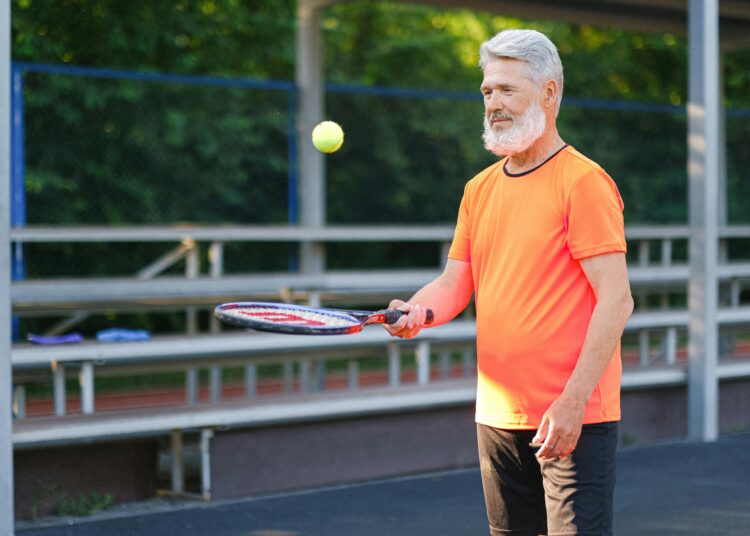Sitting in a doctor’s office, dissecting the results of a thorough health examination, I find myself faced with an unexpected discovery: a “prolonged PR interval” indicating a possible “first-degree heart block.” Despite the reassuring terminology, a chill runs down my spine. It’s a sobering moment for someone who has recently turned 60, contemplating the road ahead. How many years remain? And crucially, how many of those will be marked by vitality and joy rather than illness and decline?

Reflecting on decades of relative inactivity and indulgence, juxtaposed against recent endeavors towards wellbeing, I’m confronted with a pressing question: can a late conversion to a healthier lifestyle counteract the effects of years spent in revelry? My journey towards wellness began hesitantly but gained momentum over the past fifteen years. From embracing the outdoors in the French countryside to adopting running as a passion, I’ve gradually come to appreciate my body’s resilience and adaptability. Smoking and drinking are distant memories, replaced by a commitment to wholesome nutrition and regular exercise. Yet, doubts linger – have I done enough?
The specters of my parents’ deaths haunt my reflections. My father succumbed to lung cancer at 67, while my mother endured a prolonged decline, succumbing to strokes at 88. Their endings were far from the dignified exits one might hope for. Witnessing their suffering has left an indelible imprint on my psyche, igniting a fervent desire for a different fate – one marked by vitality and autonomy.

My lifestyle overhaul, however belated, offers a glimmer of hope. Shedding over 33 kilograms since my days of beer and barbecues, quitting alcohol during the pandemic, and embracing a regimen of regular exercise, I find myself in arguably the best shape of my life at 60. Yet, reminders of mortality loom large – a debilitating neck injury, chronic insomnia, and niggling health concerns serve as stark reminders of life’s fragility.
Amidst reflections on mortality, a newfound resolution emerges: the pursuit of a century. It’s an audacious goal, buoyed by burgeoning scientific insights into longevity. Yet, amidst the hype surrounding radical life extension, I’m grounded by the pragmatic counsel of an actuary, offering sobering statistics tempered by personal circumstances. The pursuit of a century may seem ambitious, yet attainable through incremental lifestyle changes and a steadfast commitment to health.

Seeking clarity amidst uncertainty, I embark on a comprehensive health assessment, delving into every facet of my physical and mental well-being. From cholesterol levels to sleep quality, each metric offers insights into my journey towards longevity. The verdict is a mix of reassurance and caution – while my cardiovascular fitness earns accolades, lingering concerns about sleep quality and a mild cardiac anomaly temper my optimism.
As I contemplate the road ahead, the doctor’s parting advice echoes in my mind: “Sort your sleep out.” It’s a directive underscored by practical suggestions and a reminder of the crucial role sleep plays in overall health. The path to a century may be fraught with challenges, but armed with newfound knowledge and resolve, I’m ready to navigate the terrain, striving not just for longevity, but for a life marked by vitality and purpose.
In the consulting room, as the doctor paints a portrait of possibilities, I’m reminded of the boundless potential inherent in the human spirit. Ironman triathlons at 70 may be daunting, but they serve as a testament to the resilience of the human body. I may not know what lies ahead, but I’m determined to embrace the journey, one step at a time, towards a century of life lived to the fullest.












Discussion about this post